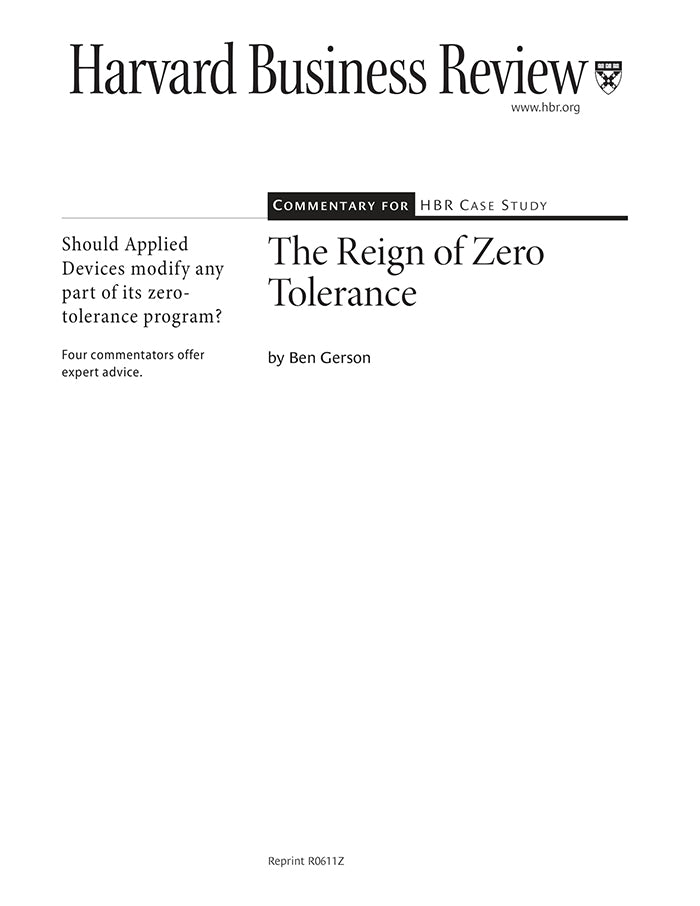Reign of Zero Tolerance (Commentary for HBR Case Study)
受取状況を読み込めませんでした
For teaching purposes, this is the commentary-only version of the HBR case study. The case-only version is reprint R0611X. The complete case study and commentary is reprint R0611A. Simon Pemberton, a materials chemist at Applied Devices, is escorted by security guards to the company parking lot, where an HR manager tells him he's fired. Until that moment, things seemed to be going well. Simon had known, of course, about AD's zero-tolerance program, but it hadn't occurred to him that he'd violated it--particularly since his unauthorized e-mailing and Internet use were meant to serve the goal of scientific inquiry. Don Hardee, the CEO, strongly believes that deviations from a defined standard of behavior shouldn't be tolerated at AD. The dangers they pose to employees' health, safety, and morale, not to mention the company's productivity and reputation, are too great. Shirlee North, the head of HR, agrees. Ever since the jilted husband of an employee burst into AD's lobby waving a pistol, workers have been clamoring for security, and the zero-tolerance policies provide that. Initially, the program covered only weapon and drug possession, but the list of offenses warranting termination has grown considerably. When Shirlee's second in command argues that such policies are unworkable and unjust, Shirlee points out that the company intervenes only when the action is clearly prohibited, the harm actual or imminent, and the evidence unambiguous. Are Don and Shirlee right to stand firm, or should Applied Devices modify its program? Commenting on this fictional case study in R0611A and R0611Z are Janet Parker, the senior vice president of human resources for AmSouth Bank; Eugene Volokh, a professor at UCLA School of Law; Jean Halloran, the senior vice president of human resources at Agilent Technologies; and Michael G. Cherkasky, the president and CEO of Marsh & McLennan.
【書誌情報】
ページ数:5ページ
サイズ:A4
商品番号:HBSP-R0611Z
発行日:2006/11/1
登録日:2011/7/29


